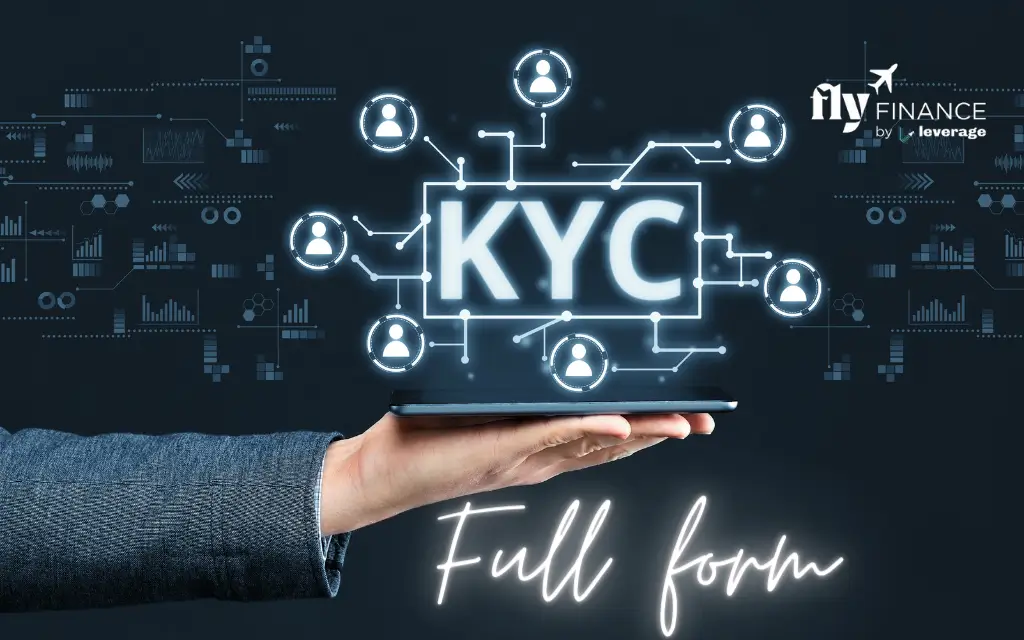The full form of KYC is ‘Know Your Customer’. This is considered a global standard through which financial institutions verify the identity and address of their customers. So, if you have secured admission to a university abroad or opened a bank account, the bank might require KYC documents. Let’s know all about KYC in this blog.
Table of contents
Overview of KYC
KYC is ‘Know Your Customer’. This is a way through which all financial institutions aim to understand their customer’s identity and address details. This helps them prevent money laundering, terrorist financing, and other financial crimes. By obtaining KYC documents, banks ensure that their services are not being misused.
- The applicant is required to submit KYC documents if you open a bank account or apply for an education/ home loan.
- These are considered as OVDs, meaning that they are Officially Valid Documents for verifying an individual’s identity.
- KYC includes details related to name, address, phone number, email address, Aadhaar Card, and signature.
Also Read: Check out the full form of RLLR and understand RLLR-based education loans, calculations, and much more in the given blog.
Features of KYC
- KYC helps banks to verify their customer’s identity through documents like passports and address proofs.
- KYC verification may also include verifying the source of the customer’s funds.
- KYC isn’t a one-time process. Banks have to periodically review customer information to ensure continued compliance.
Benefits of KYC
- KYC helps in identifying criminal financial activities money laundering and terrorist funding.
- Conducting fraudulent transactions gets harder for criminals and scammers due to KYC verifications.
- KYC compliance enables customers to open student bank accounts, receive funds, apply for education loans, pay bills via UPI, and manage finances more conveniently.
What are KYC documents?
KYC documents are one of the types of documents required for education loans. Besides, six other documents are considered OVDs (Officially Valid Documents) to verify your identity. These are specified by the Government of India. Documents may vary depending on the country and the institution. However, KYC documents that can be submitted to Indian Banks are-
- Passport
- Driving Licence
- Voter’s Identity Card
- PAN Card
- Aadhaar Card issued by the UIDAI
- NREGA Card
Any of the above-mentioned KYC documents can be produced before the financial institution as proof of identity. Since many of these documents also contain the address details, it would be accepted as proof of address.
Also Read: Ever heard of NPA in banking? Check out its full form, types, and examples.
Are KYC Documents Mandatory to Submit?
If you are wondering about opening an account or applying for a loan without KYC documents, please be aware that it is not possible. An applicant must present the above-mentioned documents to prove their identity and address.
However, a ‘Small Account’ may be opened with some banks by submitting your recent passport-size photograph. You also need to add your signature or thumb impression in the presence of the bank official.
eKYC
KYC is usually done by visiting the banks. However, to offer more convenience to the customers, financial institutions allow of eKYC. eKYC is ‘Electronic Know Your Customer’ wherein the customer’s identity and address details are verified electronically using Aadhaar, the country’s national biometric ID program.
Via eKYC, the information is captured from IDs (OCD mode) and digital data is extracted from government-issued smart IDs.
- eKYC is fast and simple as automated systems are used to fasten the process.
- The process saves time and money.
- Customers are provided with a more streamlined and low-effort experience via eKYC.
- Features like facial recognition and voice recognition make it easier for customers to submit their photos and other details.
- OTP (One Time Password) provides extra security against identity theft.
FAQs
The full form of KYC is ‘Know Your Customer’. This is considered a global standard through which financial institutions verify the identity and address of their customers.
Financial institutions aim to understand their customer’s identity and address details via KYC. This helps them prevent money laundering, terrorist financing, and other financial crimes. They are also able to ensure that their services are not being misused.
KYC compliance helps customers to open a bank account, apply for loans, fulfil visa requirements, receive money, and pay bills.
eKYC is ‘Electronic Know Your Customer’ wherein the customer’s identity and address details are verified electronically using Aadhaar, the country’s national biometric ID program. This offers more convenience to the customers as they don’t have to be physically present for KYC verification.
Six documents are considered OVDs (Officially Valid Documents) to verify your identity and address, as specified by the Government of India. These are passports, driving licences, Voter’s Identity cards, PAN cards, Aadhaar cards issued by the UIDAI, and NREGA cards.
An applicant must present KYC documents to prove their identity and address to open a bank account or apply for loans. However, if you don’t have KYC documents, a ‘Small Account’ may be opened with some banks by submitting your recent passport-size photograph. You also need to add your signature or thumb impression in the presence of the bank official.
This was all about the full form of KYC, its features, benefits, and why it is important. All customers must ensure KYC compliance and coordinate with the banks. To know more about education loans, the best bank accounts for students, forex and banking experience for global students or international money transfers, reach out to our experts at 1800572126 to help ease your study abroad experience.
Follow Us on Social Media





























